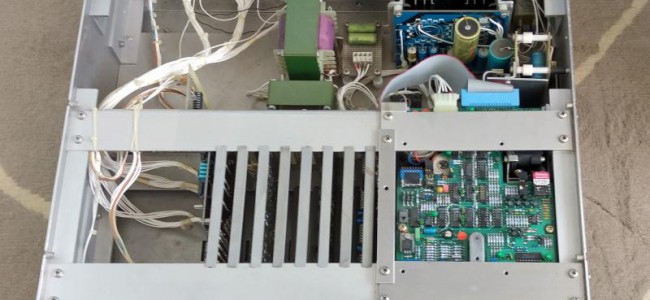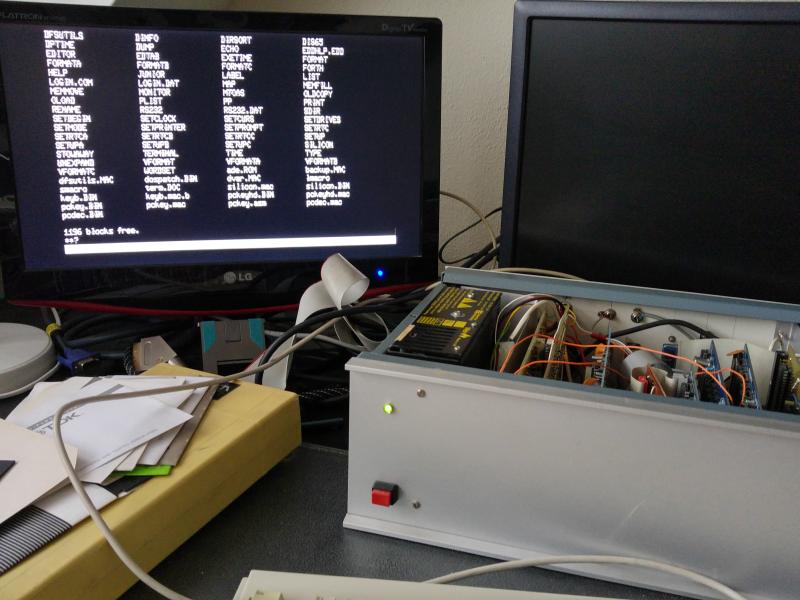I have spent the last two months updating the DOS65 pages.
This floppy based system, developed by members of the dutch KIM Userclub, to name a few Ad Brouwer, Havisoft (Adri Hankel, Erwin Visschedijk) , Nico de Vries, was a full operating system for the 65(C)02 for a ‘personal’ computer around boards and backplane bus, CPU, memory, video,, developed by the electronics maganize Elektuur/Elektor and boards developed by the club members such as a floppy controller.
The hardware offered input via a parallel keyboard (and later IBM PC AT, PS/2 keyboards). Output via composite video, Centronics printer interface, RS232 serial. A free 6522 offered even more I/O facilities.
Either one or two 5 1/4 floppy drives, later also 3.5 inch or even WInchester drives and silicon disk drives were available.
Several hundred machines may have been built and used in the 80ties. Complete with a capable operating system, fully documented and open sourced, choice of programming such as a Text Editor, Macro Assembler, Small C, a fully standard ISO7185 Pascal (written in assembler, source available!), an enhanced Microsoft Basic interpreter, Comal, Forth. Applications mention worth are terminal emulation/communication for BBS and the dutch Viditel system.
The video system did not lead itself to game development (80 characters, black and white) but made it a comfortable computer for programming and text editing. The appearance of the IBM PC and hobby game computers made the system less interesting and around 1995 most users left the system.
Not many systems survive as far as I know, I have three now, donated by Andrew Gregory, Adri Hankel and Herman Hek, complete with lots of floppies with sources and manuals and paper documentation.
The most advanced system and in perfect working condition is the DOS65 system made by Andrew Gregory. It has a 3,5 inch internal and 5 1/4 external floppy drive (both DSDD) and a 128KB silicon disk. This is the system I have used to study and document DOS65. With the aid of some modern tools, such as the HxC2001 floppy drive emulator and some Pascal programming I have examined and converted to PC format the files on the floppies to readable format.
From the main DOS65 page you have access to what I know of this system: hardware, system operating software, programming languages, utilities, manuals etc.


